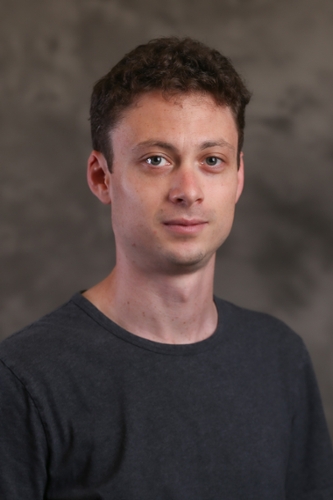
Austin Cooper
Assistant Professor
// History
Faculty
Assistant Professor
// Cornerstone
Faculty
Research focus:
Contemporary International History, History of Science and Technology
Office and Contact
Room: BRNG 6165
Office hours:
- Spring 2024:
- Monday & Wednesday, 3:30 - 4:30pm
Email: cooperar@purdue.edu
Courses
HIST 33205 - The Nuclear Age
HIST 44100 - Africa in the Twentieth Century
SCLA 102 - Transformative Texts, Critical Thinking And Communication II: Modern World
Austin R. Cooper is an Assistant Professor of History at Purdue. He is a historian of international politics since 1945 with a focus on nuclear technologies.
He is working on a book project, Saharan Fallout: French Explosions in Algeria and Nuclear Weapons in the Global Cold War, about France’s emergence as a nuclear weapon state during the 1960s. The book explains how French nuclear weapons transformed Cold War rivalries, but hardly because of changes in force posture or in the balance of power in Europe, as security studies experts would tend to expect. Instead, French use of the Algerian Sahara for testing and developing the first French nuclear weapons catalyzed African engagement with the Cold War arms race and Western fears in turn that this issue might alienate the decolonizing and developing world. These arguments draw on archival records from the United States, United Kingdom, France, Canada, international organizations, and civil society groups.
He is starting a new project about the development of the nonproliferation regime and possible gaps in it, including civilian nuclear facilities and radiological threats. His research interests include international and political history, peace and conflict, social movements, technical expertise, and nuclear policy.
In the College of Liberal Arts, he is affiliated with the Sociogenomics initiative. His research on nuclear technologies examines political claims based on radiation exposure—or the possibility of this exposure—from nuclear attacks, nuclear weapons tests, and nuclear energy accidents. The research asks how these claims, which can invoke genetic damage, affect nuclear decision-making and social perceptions of these choices.
Additionally, he is associated faculty in the Center for International Studies at SciencesPo Paris, where he contributes to the Nuclear Knowledges program. Prior to joining Purdue, he completed a postdoctoral fellowship supported by the Stanton Foundation in the Security Studies Program at the Massachusetts Institute of Technology and a fellowship in the Center for International Security and Cooperation at Stanford University. He earned his PhD in History and Sociology of Science from the University of Pennsylvania.
He is willing to advise research projects on nuclear history and related approaches to international security since 1945.
Recent Publications
“How to Hide a Nuclear Explosion: French Secrets about Saharan Fallout across Decolonizing Africa,” in Making the Unseen Visible: Science and the Contested Histories of Radiation Exposure, eds. Jacob D. Hamblin and Linda M. Richards (Corvallis, OR: Oregon State University Press, 2023), 109-30, https://osupress.oregonstate.edu/book/making-unseen-visible.
"The Argentella scandal: why French officials did not make Corsica a nuclear test site in 1960," The Nonproliferation Review (2023) DOI: 10.1080/10736700.2023.2187529
“The Tunisian Request: Saharan Fallout, U.S. Assistance, and the Making of the International Atomic Energy Agency,” Cold War History 22, no. 4 (August 2022): 407–36, https://doi.org/10.1080/14682745.2022.2085252.